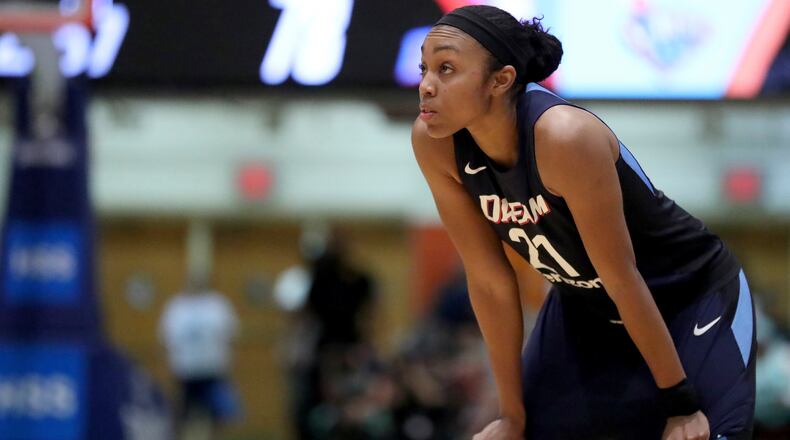Renee Montgomery, part owner and vice president of the WNBA’s Atlanta Dream, wants to make sure that the world knows Ora Washington’s story. That’s why, when the BBC asked her how much she knew about the Hall of Fame basketball and tennis player, Montgomery wanted to know all about Washington’s story. The BBC’s question sent Montgomery into research mode where she learned more about Washington’s legacy.
Through conversations with Washington’s loved ones and through her own research, Montgomery immersed herself in the life of her subject. In each episode of the podcast “Untold Legends: Ora,” Montgomery details Washington’s life from her youth to falling in love with tennis and basketball.
As Montgomery researched and told Washington’s story, she began to understand how Washington lived her life as a professional athlete during the Jim Crow era.
Washington was a tennis and basketball player who dominated Black women’s tennis in the 1920s and 1930s. She was also the top player for the Philadelphia Tribunes and Germantown (Pa.) Hornets women’s basketball teams. By the time she retired, Washington had played 12 years of undefeated tennis, earning 201 trophies for both tennis and basketball, all while working a 9-to-5 job.
“The reason she had a whole different life was because at that time, you know, it was in the Jim Crow era,” Montgomery said. “And so there was a lot going on in a sense of her being a Black woman. She was still doing hard labor work first on the farm, and then she worked and did housekeeping kinds of duties, but she did hard labor her whole life and then still trained after that.”
Montgomery may not completely know what it was like to be an athlete during segregation, but she understands what it’s like to put in the hours while not receiving all the recognition. That’s why she wants to make sure that Washington’s story does not fall through the cracks.
“I think that history gets erased a lot, and the more time that passes and things that slip away through the cracks, you know, that’s how a person’s legacy can be forgotten,” Montgomery said. “And so, for me, why it was important to me is because we look at women’s sports, there’s a lot of women athletes that before the WNBA existed, were playing basketball at their highest level, the highest level that they could play in and we may not hear about them, we may not know about them. "
The podcast premiered Aug. 25 and currently has five of its episodes available wherever listeners find their podcasts.
“I want everyone to go on a journey with us because as I uncovered things, we give you a live account sometimes of those things,” Montgomery said. “What were the reporters saying, who were the people she was playing against? What was the match like? Everybody in Harlem was fly like that, like those are the things we started to find out. And so each week, we just uncover new things.”
About the Author
Keep Reading
The Latest
Featured



